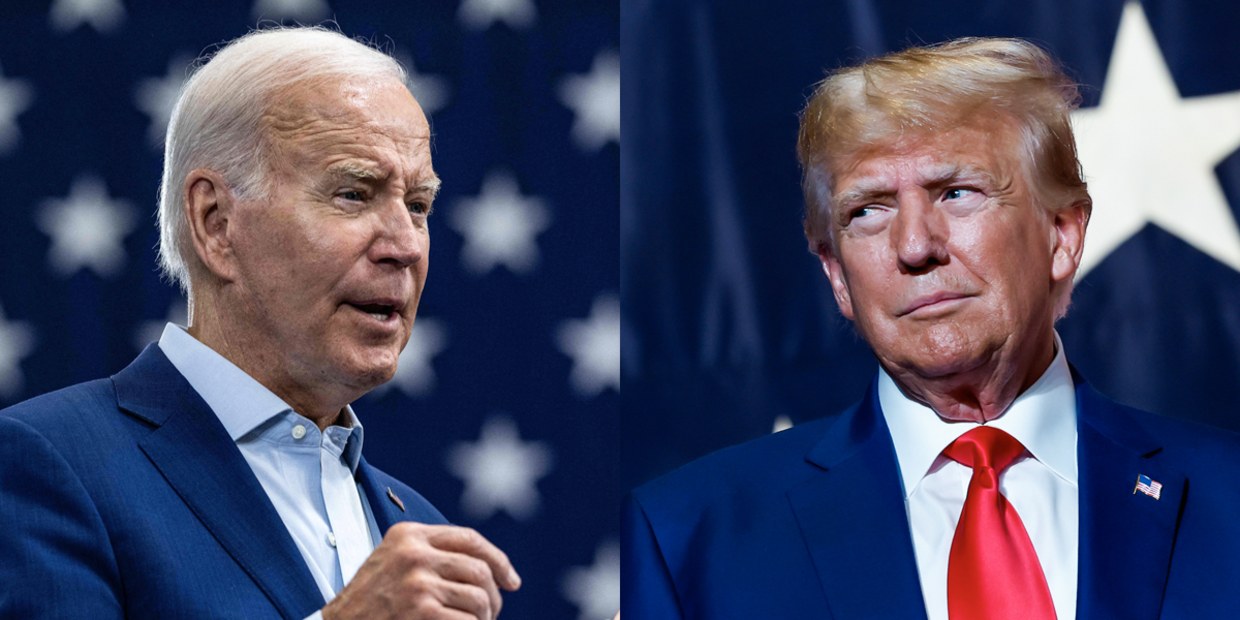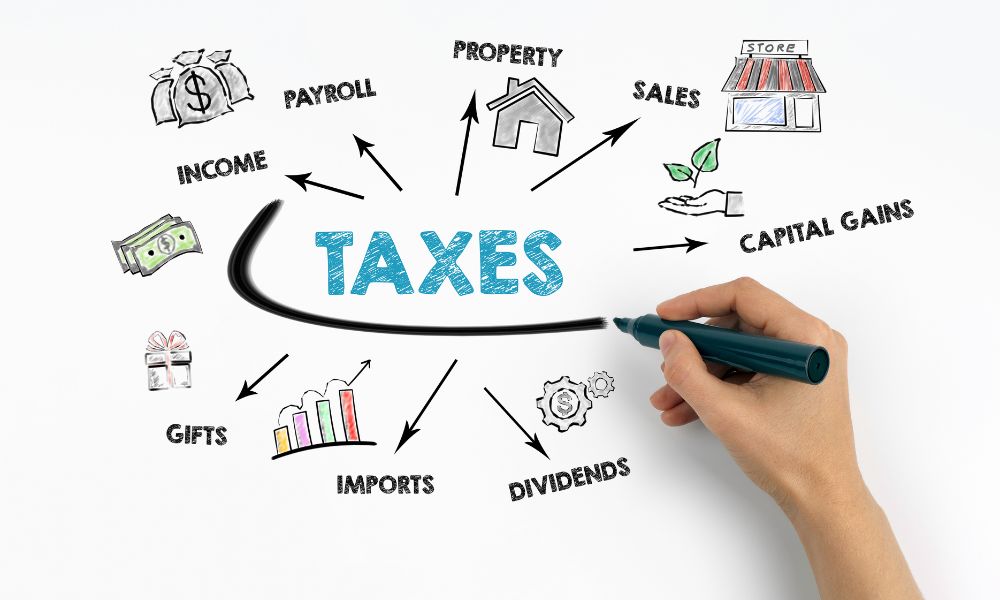What Americans Really Think About Biden and Trump in the ever-evolving political theater of the United States, few rivalries have captivated the public quite like the one between Joe Biden and Donald Trump. As the 2024 election cycle gains momentum, the national dialogue around these two political titans has grown louder, more passionate, and, at times, polarizing. From diner booths in Iowa to talk shows in New York, Americans are expressing complex and often contradictory opinions on both leaders. At the heart of this national discourse lies one critical concept: Biden Trump public perception.
A Nation Divided: The Two Americas
When discussing Biden Trump public perception, it’s impossible to ignore the stark polarization that defines the American political landscape. It’s not just about policy anymore—it’s personal. For many, Trump embodies disruption and defiance against the establishment, while Biden represents a return to stability and traditional governance. These symbolic roles shape how each leader is viewed beyond their actual records.
Among conservatives, Trump remains a dominant force, often regarded as a champion of economic strength, deregulation, and strong national identity. In contrast, Biden is seen by progressives as a calming voice in a chaotic era, with a focus on empathy, unity, and democratic norms.
This duality creates what social scientists often refer to as “cognitive dissonance”—a space where the same individual can be both a savior and a villain depending on which ideological lens is used.

Approval Ratings and Emotional Resonance
Approval ratings offer a quantitative window into Biden Trump public perception, but numbers only tell part of the story. While polls fluctuate with current events, they also capture deeper emotional undercurrents. Biden’s supporters, for instance, often cite his empathy and long history of public service. He’s viewed as a steady hand, even if criticisms of age and energy persist. On the flip side, Trump’s supporters frequently highlight his unapologetic stance and business acumen. He’s seen as a disruptor who gets things done, despite controversies that never seem far behind.
Emotions drive engagement. Whether it’s admiration, anger, or anxiety, Americans feel deeply about these two men. That emotional connection—or repulsion—fuels turnout, donations, and debates at family dinners.
Media Narratives: Shaping Minds and Biases
The media landscape plays a colossal role in sculpting Biden Trump public perception. Right-leaning outlets frame Biden as weak or indecisive, while left-leaning media often paint Trump as a threat to democracy. These narratives reinforce tribal loyalties and rarely leave room for nuance.
Cable news, podcasts, YouTube channels, and viral TikTok clips all contribute to echo chambers where perception becomes reality. Americans increasingly curate their news diets to match their beliefs, reinforcing pre-existing biases rather than challenging them.
Independent journalism and fact-checking have become essential in cutting through the noise. Still, even verified information is often met with skepticism if it doesn’t align with the viewer’s political identity.
Social Media: Amplifier of Emotion
Nothing influences Biden Trump public perception quite like social media. It’s the battleground where supporters and critics alike hash out their views in real time. Twitter, Facebook, Instagram, and newer platforms like Truth Social and Threads host millions of conversations daily.
On Trump’s side, his digital prowess—especially his use of social media for direct communication—remains unmatched. Even after bans and platform changes, he continues to dominate online chatter. Biden’s online presence, while more reserved, taps into authenticity and emotional appeals. His team often uses social platforms to showcase his humanity, humor, and compassion.
Misinformation, memes, and viral moments play their part too. One tweet or TikTok can sway opinions or reinforce stereotypes, turning fleeting content into enduring beliefs.
Policy vs Personality: What Matters More?
Another layer of Biden Trump public perception revolves around policy versus personality. Biden’s presidency has focused on infrastructure, healthcare access, climate change, and restoring alliances. His supporters argue that he’s getting things done, even if not flashy.
Trump, on the other hand, has been evaluated more on persona than policy. His tenure brought tax cuts, deregulation, and a renegotiation of international deals. Yet, it’s his combative style and fiery rhetoric that dominate the headlines—and hearts—of his base.
The question arises: do Americans vote more on what leaders do, or how they make them feel? For many, personality is policy. They see Trump as strong and fearless. Others see Biden as kind and composed. These traits can often matter more than legislative wins or losses.
Generational Divide: Old vs New
Generational perspectives further influence Biden Trump public perception. Younger voters, particularly Gen Z and younger millennials, tend to lean progressive. They favor Biden’s focus on climate action, student debt relief, and inclusive policies. But enthusiasm remains tempered. Many see him as out of touch with youth culture and digital trends.
Trump finds more traction among older voters, especially those nostalgic for a pre-globalized, economically dominant America. His messages of strength, sovereignty, and anti-elitism resonate deeply.
However, there’s nuance. A growing number of young conservatives admire Trump’s rebellious tone, while some older moderates prefer Biden’s diplomacy and experience. The lines aren’t always clean.
The International Gaze: How the World Sees Them
While the focus of Biden Trump public perception is domestic, the world is watching. Allies and adversaries alike interpret the rise or fall of these leaders as indicators of where America is heading.
Biden’s international reputation is largely built on diplomacy and alliance-building. He’s often described as predictable and reliable. Trump, however, is viewed as a wildcard—unconventional but effective in shaking up the status quo. His “America First” approach earned both admiration and concern across borders.
These global perceptions loop back into domestic narratives. Supporters of each man often cite international opinion as validation—or condemnation—of their preferred candidate.
Scandals and Stamina
Scandals are an inevitable part of modern politics. The way Americans digest and react to controversy is a crucial component of Biden Trump public perception.
Biden has faced scrutiny over his son Hunter Biden’s business dealings, as well as concerns around age and vitality. Trump, meanwhile, continues to deal with multiple legal investigations and ongoing fallout from January 6th.
Interestingly, for many voters, these controversies don’t significantly sway opinion. Instead, they’re often seen through partisan filters—dismissed as witch hunts or covered up as media bias. What might be disqualifying to one voter may be irrelevant to another.
This resilience to scandal suggests that perception is now more narrative-driven than fact-based. Americans choose their truths, and their leaders, accordingly.
The Battle of Empathy vs Authority
At the philosophical level, Biden Trump public perception often boils down to a battle between empathy and authority. Biden’s tone is conciliatory. He appeals to shared values, unity, and healing. Trump embraces confrontation. His rhetoric is forceful, confident, and often unfiltered.
These differing energies attract different Americans. Some crave calm after chaos. Others seek disruption to change the system. Biden speaks to the soul of the nation. Trump speaks to its frustrations.
The emotional undercurrent behind each leader shapes not only public opinion, but the broader cultural moment. It influences how people see America itself—its past, present, and future.
The Silent Middle
In a sea of loud voices, there exists a quieter but substantial group of Americans whose Biden Trump public perception is more ambivalent. These swing voters are not married to ideology but are instead focused on practical issues—economy, healthcare, safety, education.
To this group, neither man is perfect. They appreciate Biden’s decency but worry about his age. They admire Trump’s confidence but fear his divisiveness. These voters may ultimately decide the outcome of 2024.
Understanding this middle ground is vital for both campaigns. It’s not about winning Twitter battles—it’s about addressing real concerns with clarity and compassion.
Closing Thoughts: Perception as Power
As the 2024 election draws nearer, the story of Biden Trump public perception continues to unfold like a national drama—one filled with passion, paradox, and unpredictability.
Americans are not merely choosing a president. They’re choosing a vision, a tone, a symbol of what they believe their country should be. And whether that symbol is embodied by Joe Biden or Donald Trump, the perception each leader evokes will echo far beyond the ballot box.
In this landscape of strong opinions and deeper emotions, one thing is certain: public perception isn’t just about image—it’s about identity. And in the United States, identity politics reign supreme.




